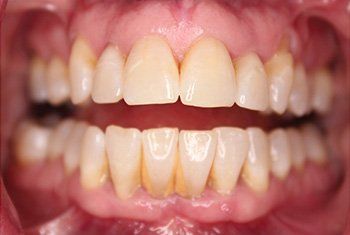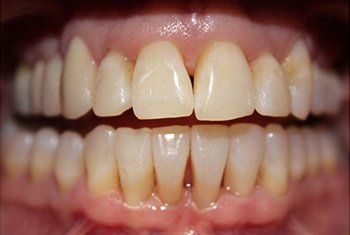Dental Crowns In Columbia, MD
Understanding Dental Crowns: Restoring Function and Aesthetics
Dental crowns are also called caps. They can be used to protect and encase damaged or weak teeth. Custom-made to match your natural teeth in size, color, and shape, they blend seamlessly into your smile. Dental crowns have many benefits.
Restoration: Dental Crowns restore strength, stability, and functionality to damaged teeth. You can now bite, chew, and speak confidently.
Protection for Tooth Structure: Dental crowns protect the visible part of the tooth above the gumline from further damage, decay, and fracture.
Enhancement Aesthetics: Dental crowns are a great way to improve your smile's appearance by hiding imperfections like cracks, chips, or discoloration.
Durability and Longevity With the right care and maintenance, dental caps can last many years. They are reliable and durable options for restoring your oral health.
Smile Savers Dentistry Offers Dental Crowns to Restore Your Smile
We're happy to welcome you to Smile Savers Dentistry. Our team is dedicated to helping restore the health, beauty, and function of your smile. Our practice, led by Dr. Anuja Patel as our head dentist, offers high-quality solutions for dental crowns that are tailored to the individual needs of every patient. Our custom-made dental crowns are the perfect solution for repairing a damaged or weak tooth, strengthening a weak tooth, and enhancing the look of your smile.
Schedule an Appointment Today
Dental Crowns Available at Smile Savers Dentistry
- Porcelain-Crowns: Porcelain-Crowns are highly aesthetic restorations that closely mimic the appearance of natural tooth enamel. Custom-made to match your teeth color, transparency, and texture, they ensure seamless integration into your smile. Porcelain Crowns are an ideal choice to restore front teeth and other highly visible areas in the mouth.
- Porcelain-Fused-to-Metal (PFM) Crowns: PFM crowns combine the strength and durability of metal with the aesthetic benefits of porcelain. The metal substructure is covered by a layer made of porcelain that matches the tooth color. This provides excellent strength and stability, while still achieving a natural look. PFM crowns can be used on both the front and rear teeth. They offer a combination of durability and aesthetics.
- All Ceramic Crowns: All ceramic crowns are made of zirconia, lithium disilicate, or other ceramic materials for the best aesthetics and biocompatibility. These crowns offer a natural-looking appearance, are stain-resistant, and highly durable. All-ceramic dental crowns are a great option for patients who have metal allergies or for those looking for the most natural restoration of their smile.
- Gold Crowns: Gold crowns have a reputation for being strong, long-lasting, and biocompatible. Gold crowns are not as commonplace as porcelain or ceramic ones, but they offer unmatched durability and wear resistance. They're a great choice for posterior teeth that receive heavy biting forces.
Schedule Your Dental Crown Consultation Today
Dental crowns can restore your smile to its original health and beauty if you are experiencing problems with your teeth, such as decay or damage. Let us create the smile you've always wanted with our custom-made dental crowns. Schedule a consultation today with Dr. Patel. Call us to schedule your appointment today and start the journey towards a happier, healthier smile.
The Dental Crown at Smile Savers Dentistry
The procedure for dental crowns typically includes the following steps:
Comprehensive Exam
Dr. Patel will begin by performing a thorough oral examination, which includes X-rays, diagnostic imaging, and other tests to determine the extent of decay or damage in the tooth. According to his findings, Dr. Patel will decide if a dental cap is the best treatment option for you.
Tooth Preparation
Dr. Patel will prepare the affected tooth to accommodate the dental crown by removing damaged or decayed tissues and reshaping its structure. This will ensure that the crown is properly aligned and fits with the teeth and gums surrounding it.
Taking an Impression
After the tooth has been prepared, Dr. Patel will take impressions to create a precise mold of the tooth. These impressions are used to create your custom dental crown.
Temporary Crown Placement
Dr. Patel will place a temporary dental crown on the prepared tooth while your permanent crown is being made in a laboratory. This will protect the tooth and keep its function and appearance. Temporary crowns can be made from acrylic or composite material and are used to cover your tooth until the final restoration is complete.
Custom Fabrication
Our dental lab technicians will custom-craft your dental Crown using only the finest materials and most precise fabrication techniques. We are proud to create crowns that restore your smile's health and function, while also enhancing its natural beauty.
Final placement
After your custom crown has been completed, Dr. Patel carefully places the permanent over the prepared tooth. She will check the aesthetics, fit, and bite of the crown in order to ensure maximum comfort and function. The crown is adjusted to ensure a perfect alignment and fit.
Bonding
After the crown has been firmly positioned on the tooth, Dr. Patel will bond it using dental adhesive or cement. The crown is then polished to remove any imperfections or rough edges. This ensures a seamless transition between the crown and natural teeth.
Instructions for Post-Placement Care
Dr. Patel gives detailed instructions on how to maintain your dental crown. It is important to maintain good oral hygiene, have regular dental exams, and avoid habits that could damage or dislodge your crown.
Smile Savers Dentistry Dental Crowns: Benefits
- Natural Appearance: Dental crowns can be custom-designed to match your natural teeth in color, size, shape, and color.
- Strengthened Function: Crowns protect and strengthen weakened or damaged teeth, allowing bites, chewing, and speaking with confidence.
- Improved Oral Health: Crowns restore the structure and integrity of damaged teeth and help prevent further decay or infection. They also preserve your oral function and health.
- Durability and Longevity: With the right care and maintenance, dental caps can last many years. They are a reliable solution for restoring your smile.
- Versatility: Dental crowns are used to treat a variety of dental problems, such as decay, fractures, cracks, discoloration, or irregularities.
- Customization Options: We offer porcelain, ceramic, and gold crowns to meet your needs, budget, and treatment goals.
Frequently Asked Question about Dental Crowns
What are dental crowns?
Dental crowns are also called caps. They are dental restorations used to cover an entire tooth that is damaged or weak. These crowns are made from materials like porcelain, metal or ceramic. They look and feel just like natural teeth.
Dental crowns can be used to protect and strengthen teeth that are damaged by decay, trauma or other factors. The crowns can be used to restore a tooth's shape, size and function after it has been damaged or severely worn.
Two visits to the dentist are usually required for the process of getting a crown. The dentist will shape the tooth to fit the crown during the first appointment. The dentist will take an impression of the teeth, which will then be used to make the crown. While the permanent crown is being created, a temporary crown can be placed.
The permanent crown is cemented onto the tooth during the second appointment. We will make any necessary adjustments to the crown color and fit.
Dental crowns can be a great way to improve the appearance and function of your mouth.
What is biomimetic dental technology?
Biomimetic Dentistry is a restorative approach that uses materials that mimic natural properties in teeth. The word "biomimetic," which means "mimicking" life, is used to describe the approach of restorative dentistry that focuses on preserving as much of the natural tooth structure while using materials that mimic the properties of teeth.
Biomimetic dental techniques and materials are used to create strong, long-lasting and aesthetic restorations. Biomimetic dentistry may, for example, use composite resins that are matched to match the color of the teeth and can bond directly to their structure. This can prevent further damage and help maintain the natural strength and function of the tooth.
The importance of a proper diagnosis and treatment plan is also stressed by biomimetic dentistry. Biomimetic dentistry uses advanced imaging and diagnosis techniques to determine the underlying causes for dental problems. They then develop a treatment plan that targets the root cause.
Biomimetic dentistry is an approach to restorative dental care that is conservative, minimally invasive, and seeks to preserve natural tooth structure, while creating strong, durable and aesthetically pleasing restorations.
What are alternatives to dental crowns?
Dental crowns can be replaced in a variety of ways, depending on your specific dental problem and the needs of the patient. Here are the most common alternatives.
- Fillings in the mouth: Dental fillings can be used to repair minor tooth damage or cavities. These fillings are usually made from composite resin or metal amalgam, and they can be colored to match the color of your natural teeth.
- Onlays and Inlays: These are used for more severe damage, such as large cracks or cavities. These are made to fit the damaged area and can be made from porcelain or composite resin.
- Veneers can be used as a cosmetic option to dental crowns to correct teeth that have been discolored, are misshaped, or are damaged. These are usually made from porcelain or composite resin, and are bonded directly to the front of the teeth.
- Dental bonding can be a simple and quick alternative to crowns for minor cracks or chips in teeth. The tooth-colored resin is applied to the affected area and bonded with a special laser.
- Root canal treatment: If a tooth has been severely damaged or is infected, it may be necessary to perform root canal therapy. This is done by removing damaged or infected tissues from the inside of the tooth, and then filling the space with a dental substance to prevent further damage.
The best alternative to dental caps will ultimately depend on your specific dental problem and the needs and preferences of the patient. Consult a dentist before deciding on the best treatment.
What are the different types of dental crowns?
Each type of crown has its own pros and cons. Dental crowns are available in several types.
- Porcelain-fused-to-metal (PFM) crowns: These crowns have a metal base that is covered with a layer of porcelain to give the crown a natural appearance. PFM crowns can be durable and withstand chewing and biting forces, but sometimes the metal base is visible at the gumline.
- Crowns made of porcelain or ceramic: These crowns have a natural look because they are entirely made from porcelain or ceramic material. People with metal allergies, or those who want a metal-free restoration, may prefer ceramic or porcelain crowns.
- Gold alloy crowns. These crowns consist of a mixture of gold, silver, copper and other metals. Gold alloy crowns have a high strength and durability, and do not wear away the tooth structure like other crowns. They are not as attractive as porcelain or ceramic ones.
- Zirconia Crowns: Zirconia is a biocompatible, strong material with a similar color to that of natural teeth. Zirconia Crowns are long-lasting and durable. They can also withstand chewing and biting forces.
The type of crown that you choose will be determined by several factors including the location of your tooth, its extent of damage, and personal preference. We can help you decide which crown type is best for you.
What are the different types of materials used for dental crowns? What are their advantages and disadvantages?
Each material used for dental crowns has its own pros and cons. Here are the most common materials that are used to make dental crowns.
- Porcelain-fused-to-metal (PFM) crowns: PFM crowns have a metal base covered with a layer of porcelain to give them a natural appearance. The metal base gives the crown strength and durability while the porcelain finish gives it a natural appearance. PFM crowns are durable and have a natural look. The metal base can be seen as a dark band at the gumline, and may not look as good as ceramic or porcelain crowns.
- Crowns made of porcelain or ceramic: These crowns have a natural look because they are entirely made from porcelain or ceramic material. Ceramic or porcelain crowns have a natural finish, and are biocompatible. They may not last as long as other crown types, and can be more susceptible to cracking or chipping.
- Gold alloy crowns. Gold alloy crowns consist of a mixture of gold, silver, copper and other metals. Gold alloy crowns are durable and resistant to wear. They are less aesthetically pleasing than other crowns and can be more costly.
- Zirconia Crowns: Zirconia is a biocompatible, strong material with a similar color to that of natural teeth. Zirconia crowns have many advantages, including durability, biocompatibility and a natural finish. They can cost more than other crowns.
Do I need a crown after root canal therapy?
A dental crown may be required in many cases after a treatment for a damaged or infected pulp. The pulp of the tooth is removed and replaced with a filling. The tooth can become weaker, and more prone to breaking or cracking.
A dental crown is a great way to restore the strength and function of a tooth. After the root canal is completed, the crown is placed on the remaining portion of the tooth. The crown is a cap that covers the tooth, adding strength and protection.
To ensure that the root canal treatment is successful and has the best outcome, it's important to follow the dentist's advice.
What is the procedure for dental crowns?
Here is a brief overview of dental crowns:
- Evaluation and preparation. The first step of the dental crown procedure involves an evaluation by a doctor. The dentist will evaluate the tooth and its surrounding tissues to determine whether a crown is needed and what type of crown would be appropriate.
- The dentist will start preparing the teeth if a crown is needed. This includes removing decay and damage, as well as shaping the tooth to accommodate the crown.
- Impressions: After the tooth has been prepared, the dentist takes impressions of it and the surrounding teeth. These impressions are used to make a crown that perfectly fits over the tooth.
- Temporary crowns: The dentist will cover the prepared tooth with a temporary crown while the permanent crown is being made. This protects the tooth.
- The dentist will place the permanent dental crown on the prepared tooth after the permanent crown has been made. The crown color and fit will be adjusted if necessary.
- Final adjustments: The dentist will adjust the crown to fit comfortably and securely once it is placed.
Dental crowns are usually done in two or more dental visits. As the permanent crowns are custom-made by a dental lab, it can take up to 1-2 weeks for the entire process. Dental crowns are durable and can last many years with proper care. They provide a long lasting solution for damaged or decayed teeth.
Is the placement of a dental crown painful?
A local anesthetic will be used to numb the tooth and the surrounding area during the dental crown procedure. This is done to reduce any pain or discomfort. Most patients will not experience any pain or discomfort during the dental crown placement procedure.
It is normal to feel some discomfort or sensitivity in the first few days after the procedure, as the anesthesia wears down and the tooth adapts to the new restoration. It is common and can be treated with pain relievers over the counter and by avoiding hard or crunchy food for a couple of days.
You should contact Dr. Patel if you feel significant pain or discomfort following the crown placement procedure. This could indicate a problem within the crown or the underlying tooth structure. The dental crown placement is a routine procedure that is generally well tolerated.
What are the consequences of getting a crown on a tooth?
Dental crowns are an effective and common dental treatment. However, there are some risks or potential side effects to be aware of, such as:
- Sensitivity - Some patients may experience temporary sensitivity in their teeth or gums after a dental crown has been placed.
- Dental crowns are effective in protecting against decay. However, the area surrounding the crown is still susceptible to decay when oral hygiene is neglected. Brushing and flossing regularly is essential, as are regular dental checkups.
- Allergic reactions can occur in rare cases. Patients may be allergic to materials such as porcelain or metal used for crowns. This is a very rare situation, but it does happen.
- The crown can be uncomfortable or bulky at first. However, most patients get used to it within a couple of days.
Before undergoing treatment, we can talk to you about the benefits and risks of dental crowns. This will help us determine if it is the right option for your needs.
Does it make sense to put children's teeth into crowns?
We do not recommend crowns for children very often. In certain cases, crowns can be prescribed for children. For example, when a child's baby tooth is badly decayed or broken and must be preserved until the permanent tooth comes in. A crown can be placed on the tooth to protect and preserve it.
The decision on whether to place a crown on a tooth of a child should be taken on a case by case basis, and involve the dentist, child, and parents or guardians. Other treatment options such as extractions or fillings may be considered depending upon the severity of the decay.
Consider the risks and benefits associated with placing a crown onto a child's teeth, along with the child's tolerance of the procedure and ability to maintain good oral hygiene. A temporary or provisional dental crown can be used in some cases instead of a permanent one, because children's teeth still grow and change.
The decision to crown a child's teeth should be made after consulting with a dentist with experience in working with children. They can offer individualized treatment and care recommendations.
Do crowns look like normal teeth?
Modern dental crowns look and feel like natural teeth. The crown's color and shape can be tailored to match the surrounding teeth in size, color, and shape. This creates a seamless and natural appearance.
How natural the crown looks can also be affected by its material. Porcelain or ceramic crowns, for example, are used to mimic natural teeth when they are placed on the front teeth. For the back teeth, which are not as visible, other materials such as metal alloys or gold can be used.
The crown is custom-made and will fit perfectly over the prepared tooth. It will also be made to match the color, size, and shape of the surrounding teeth. The dentist may have to adjust the crown in some cases to ensure it looks and fits well.
Dental crowns are able to restore both function and appearance to a damaged tooth or decayed one with the right design, materials and placement.
Can crowned teeth get cavities?
If you do not maintain good oral hygiene, it is possible for you to develop cavities on your crowned teeth. A dental crown protects the tooth structure underneath, but the area surrounding the crown is still susceptible to decay.
To prevent dental decay and other problems, it is important to maintain good oral hygiene. This includes brushing and flossing at least twice daily and going to the dentist for regular cleanings and checkups. Dr. Patel may recommend fluoride or antibacterial mouthwash to protect your crowns and teeth.
Contact Dr. Patel immediately if you notice signs of decay such as pain, sensitivity or discoloration near a dental crown. Early intervention is important to prevent decay spreading and causing further dental problems.
While dental crowns are effective in protecting against tooth decay, good oral hygiene and regular dental visits will help to prevent dental problems and cavities.
What is the best way to take care of a dental crown?
It is vital to take care of your dental cap to prolong its life and prevent dental problems in the future. Here are some tips on how to care for your dental crown.
- Good oral hygiene is important. Brush twice daily with fluoride toothpaste, and floss every day to prevent gum disease and decay. Use a soft bristled toothbrush to clean the area around your dental crown.
- Avoid eating hard or sticky food: Biting on foods that are hard or sticky can cause your crown to break or become loose. Opt for softer, easier-to-chew foods.
- Wear a Mouthguard: If your crown is at risk of damage from sports or grinding your teeth, you should wear a protective mouthguard.
- Regularly visit your dentist: You should see your dentist on a regular basis for cleanings and checkups to make sure that your dental crowns are in good shape and to detect any issues before they worsen.
- Any changes should be noted: Contact Dr. Patel immediately if you notice changes to your dental crown. These include sensitivity, discoloration or pain. These signs could indicate decay, damage or other dental issues that need immediate attention.
Follow these tips to ensure your dental crown remains functional and strong for years.
How long can you expect a dental crown to last?
ButtonThe life expectancy of a crown depends on many factors. These include the material used, its location in the mouth and the way it is maintained. Dental crowns are generally expected to last between 5 and 15 years with the right care.
Here are some factors which can affect the life of a crown:
- Material: Different materials last for different lengths of time.
- Location: Crowns placed on the back teeth are more likely to be worn down by chewing and grinding than crowns placed on the front teeth.
- Oral hygiene. Good oral hygiene habits such as brushing your teeth and flossing can prevent decay and other dental issues that could affect the life of a crown.
- Grinding or clenching teeth: People who grind their teeth or clench them may cause their crowns to wear out faster.
- Trauma or Injury: A dental crown can be damaged or dislodged by a trauma or injury in the mouth, which reduces its lifespan.
It is very important that you take care of your dental crown and visit your dentist for regular cleanings and checkups. Dr. Patel will be able to evaluate the condition and identify any problems before they get worse. A dental crown will last many years with proper care and can protect your teeth from further decay or damage.
Does insurance cover dental crowns?
 Button
ButtonThe dental insurance coverage of crowns varies depending on your insurance provider, plan type, and reason for crown placement. Some insurance plans cover the full cost of the crown while others only cover a part of it.
Dental insurance may cover crowns for dental restoration after an injury or decay, if they're deemed medically needed. Insurance may not pay for crowns placed purely for cosmetic reasons.
You should review your dental policy and confirm your coverage with your provider. Also, you will need to be aware of any possible out-of-pocket expenses. Dr. Patel can help you understand the coverage of your dental insurance and estimate the cost for a specific dental crown treatment.













